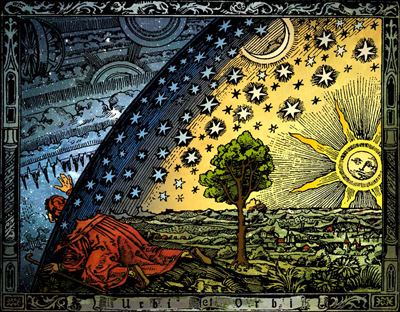Critical thinking
This topic shows you how to think critically, find hidden contexts and read between the lines
Basic terms - Introduction
“(The idea of Sun standing at the same place) is foolish and absurd in philosophy… as well as the idea that Earth is moving around it...” From investigation report on heretical ideas of Galileo Galilei
In this section we are going to go through the set of basic terms forming what we call critical thinking, terms like fact, evidence, hypothesis, assumption or opinion. To show it more specifically, we will begin with the story of Galileo Galilei, whose legend is excellent example of absenting critical thinking itself.
Many of us think that people in the past thought of the Earth as a flat board. In spite of the fact it is not the true , we can use it as an example. And so, please, assume that people really thought so, imagine that the Earth was considered to be a flat place, from which water was falling down over the edge, that people believed that they lived at the disc-world and the idea of sphere-world did not give them any meaning. They had lots of facts and evidence supporting their view. If it was spheric, they would fall down, would not they?
Disc-world according to the illustration in science-popular publication Atmosphere - Popular meteorology, woodcarving Flammarion from 1888, coloured by Hugo Heikenwaelder, 1998.
As we have said, there was a lot of evidence for seeing the world as flat. Why were ships cruising behind Pillars of Hercules (according to some scholars they are nowadays strait of Gibraltar) changing direction back to the Mediterranean without wheelman doing so? Because there was the end of the world and there were gods who were defending ships of falling down to the Tartarus. And what about those sailors who sailed further to the west? They just fell over, what else?
Saying the opposite - that the Earth is spherical and it revolves around the Sun was, according to the popular belief, dangerous in that time. But was the official belief “the fact”? Did inquisition based its beliefs on observing the reality or did it adapt the reality to its needs, and considered other view to be absurd just “because”? What were the facts or hypotheses?

